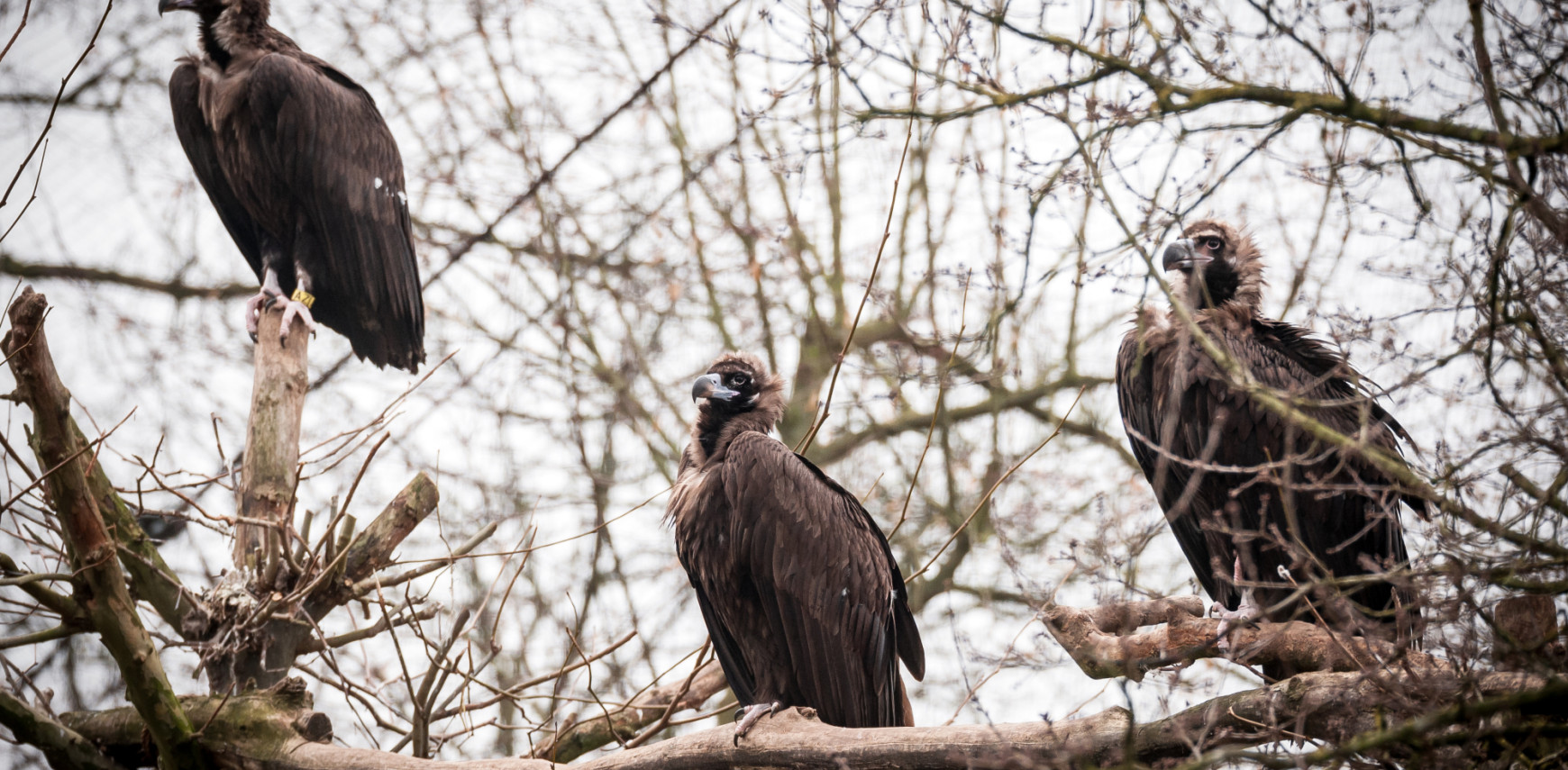Environmental enrichment can improve the welfare of vultures
Can giving new things to explore improve the welfare of vultures? That’s the question we set out to answer in our latest study at Zoo Planckendael. In this new research, we tested whether giving zoo-housed vultures different types of environmental enrichment can encourage natural behaviours and improve their welfare.
Giving animals something interesting to do
Environmental enrichment refers to objects or activities added to enclosures to stimulate natural behaviours and reduce stress. Think of it as giving animals something interesting to do, something that taps into how they would behave in the wild. For birds like vultures, this can be challenging. They are often cautious around new and unfamiliar objects (a trait known as neophobia), and very little research has explored what kinds of enrichment work best for them. With our study we aimed to change that. Over a period of five months, we introduced six different enrichment items (one at a time) to 13 cinereous vultures at Zoo Planckendael. These included large carcasses, forage boxes, twig balls, a box with food-filled tubes, mirrors, and basketballs. We compared the vultures’ behaviour before and during the enrichment period, looking for changes in activity levels, social interactions, and signs of stress.
Carcasses and mirrors stimulated natural behaviours
The vultures only interacted with the large carcasses and the mirrors. With the mirrors, for example, vultures showed curiosity and exploratory behaviours. When large carcasses were present, we saw more:
- Social behaviours, including both affiliative and aggressive interactions, just like when they eat carcasses in the wild.
- Movement: vultures flew down to feed, explored, and spent more time being active.
- Vocalisations, which is a sign of increased social engagement.
These are all signs that the vultures were stimulated and were expressing more natural behaviours.
Novelty alone can improve welfare too
Although the birds didn't interct directly with the other items, this doesn't mean they had no effect! The other enrichment items seemed to have led to less abnormal repetitive behaviour, like pecking or gnawing on enclosure wires. This suggests that novelty alone can improve welfare, possibly by offering variety or a sense of control. Some items, like the twig balls or basketballs, were approached with caution, likely due to the birds' neophobia. This tells us that vultures may need longer habituation periods or training strategies (like pairing new items with food) to feel safe enough to explore.
Even simple changes can make a big difference
For vultures in breeding programmes, enrichment can help develop natural skills, reduce boredom, and improve physical and mental health. This study highlights that even simple changes (like adding a large carcass) can make a big difference. It also reminds us to look beyond just interaction with the enrichment: animals might benefit from enrichment even if they don’t touch it.
Want to know more?
We published our findings in the Journal of Zoo and Aquarium Research, in collaboration with Jessica Smith and Matthias Laska. You can read the full article here!

